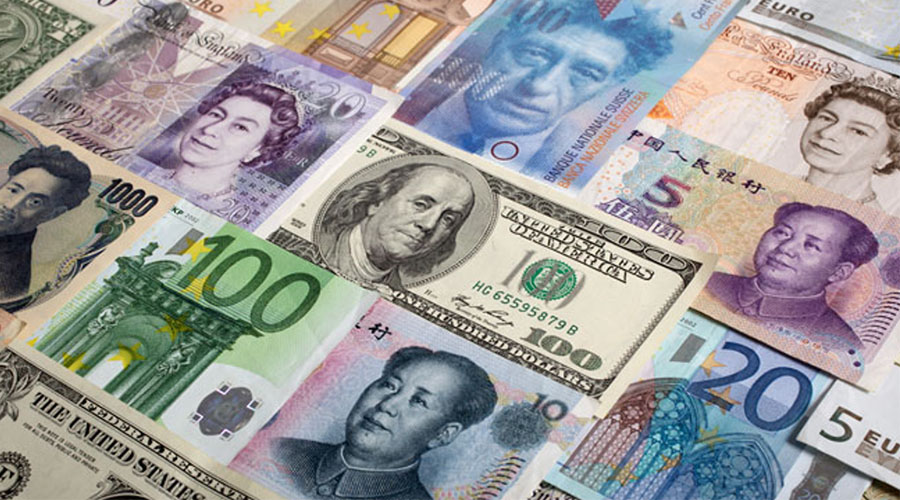Almost everyone starting a new business venture is looking for money to get started. In Nigeria, one of the easiest and cheapest ways to get funds for your business is by applying for small business grants. But unfortunately, there aren’t actually that many Nigerian federal or provincial government grants available for small businesses.
Unlike business loans, grants don’t need to be repaid, so there’s no worry over term length, interest rates, APR, or refinancing. You just need to qualify, and boom—free money. In this post we shared tips about top small business grants in Nigeria organised by government agencies and private individuals.
1. Tony Elumelu Entrepreneurship Programme (TEEP)
The Tony Elumelu Entrepreneurship Programme (TEEP) is a yearly programme launched by one of Nigeria’s business tycoon Mr. Tony Elumelu via Tony Elumelu Foundation (TEF). The program launched in 2015 is aimed at providing 10,000 USD seed funding for entrepreneurs across Africa. Every year, the programme selects 1,000 entrepreneurs across Africa from a pull of over 50,000 applicants.
Every year, the programme selects 1,000 entrepreneurs across Africa from a pull of over 50,000 applicants. Each application is carefully reviewed by business experts in the industry and winners are selected based on market feasibility, clear financial models and a capable team to run the business. Each program cycle begins with an application process opened from January 1st until March 1st.
To be eligible:
- Business must be based in Africa
- Business must be for profit
- Business must be 0-3 years’ old
- Applicants must be at least 18 and a legal resident or citizen of an African country.
Also Read: How To Get Business Loan in Nigeria: The Ultimate Guide.
2. Bank Of Industry (BOI)
The Bank of Industry (BOI) recently launched a youth empowerment program for young and talented entrepreneurs looking to venture into various sectors of Nigeria’s economy. The Youth Entrepreneurship Support (YES) Programme is BOI’s effort at addressing the worrisome phenomenon of youth unemployment in Nigeria by building the capacity of the youths and funding their business ideas.
The YES programme is aimed at equipping young people with the requisite skills and knowledge to be self-employed by starting and managing their own businesses. The YES Programme comprises of;
- Eight (8) weeks intensive online Entrepreneurship and Business Management training which has the ability to test participants’ understanding and track their progress.
- Five (5) days in-class Entrepreneurship and Business Management training.
- Technical skills training in partnership with the various technical training and vocational institutes in the country.
- Financing the businesses by BOI under its SME Cluster initiative in consonance with the United Nations Economic Commission for Africa’s Commodity-based Industrialisation Strategy.
To be eligible:
- The applicant must be a Nigerian.
- Must have a viable business idea within the 40 identified clusters that is operated, or will operate in Nigeria.
- Must be within the age limits of 18 and 35. (proof of identity: International passport/Drivers License/National ID/Voters card required).
- Must possess a minimum educational qualification of Ordinary National Diploma (OND).
- Applicant must be able to carry out the application process online.
3. GroFin Fund
GroFin is a pioneering development financier specializing in financing and supporting small and growing businesses (SGBs) across Africa and the Middle East. GroFin combines patient capital and specialized business support to grow emerging market enterprises.
GroFin Focus on Small and Growing Businesses (SGBs) that are grossly underserved by other funds or financiers. Delivers a unique integrated solution for patient risk capital and end-to-end business support to start-up and growing businesses at the SME base. GroFin has fund size of US $100+ Million to funding Nigerian micro, small and medium business (MSMEs) across the country.
To be eligible:
- Your business operates in one of the following countries: Nigeria, Ghana, Zambia, Egypt, South Africa, Kenya, Tanzania, Rwanda, Uganda.
- Your business is for profit.
- Your business has a turnover of less than US$ 15 million and assets less than US$ 6 million.
- You require financing between US$ 100,000 and US$ 1.5 million.
- The business is owner-operated and/or the owner is substantially involved in running the business.
Also Read: Five ways to get funds for a startup business in Nigeria.
4. AYEEN Financial Grants
Africa’s Young Entrepreneurs (A.Y.E) is committed to empowering young entrepreneurs across Africa by creating platforms that facilitate intra-trade on the continent. We are dedicated to developing the next generation of outstanding African entrepreneurs, who will shape the economies and political landscapes of their home countries.
AYEEN is looking to finance small business in various sectors of the economy. Winners would be awarded their respective prizes without any stake for the organizers. Although, the business owners and businesses will be duly monitored for a period of one year. The only criteria for the program are that the applicant must be a Nigerian and the business must be located in any of the 36 states of the country.
5. Lagos State Entrepreneurs Trust Fund (LSETF).
The Lagos State Employment Trust Fund (LSETF), was established by The Lagos State Employment Trust Fund Law 2016 to provide financial support to residents of Lagos State, for job, wealth creation and to tackle unemployment. LSETF serves as an instrument to inspire the creative and innovative energies of all Lagos residents and reduce unemployment across the State. The Fund is mandated to directly invest ₦25Billion in helping Lagos residents grow and scale their Micro, Small, and Medium Enterprises (“MSMEs”) or acquire skills to get better jobs.
As the brainchild of Governor Akinwunmi Ambode, the LSETF is committed to financially supporting a target of 100,000 MSMEs by 2019, creating 300,000 direct and 600,000 indirect jobs as a result. The mission is well underway, with a total of 705 beneficiaries who have received support.

